WIN DRR Leadership Awards 2024: Meet the Rising Star Award finalists
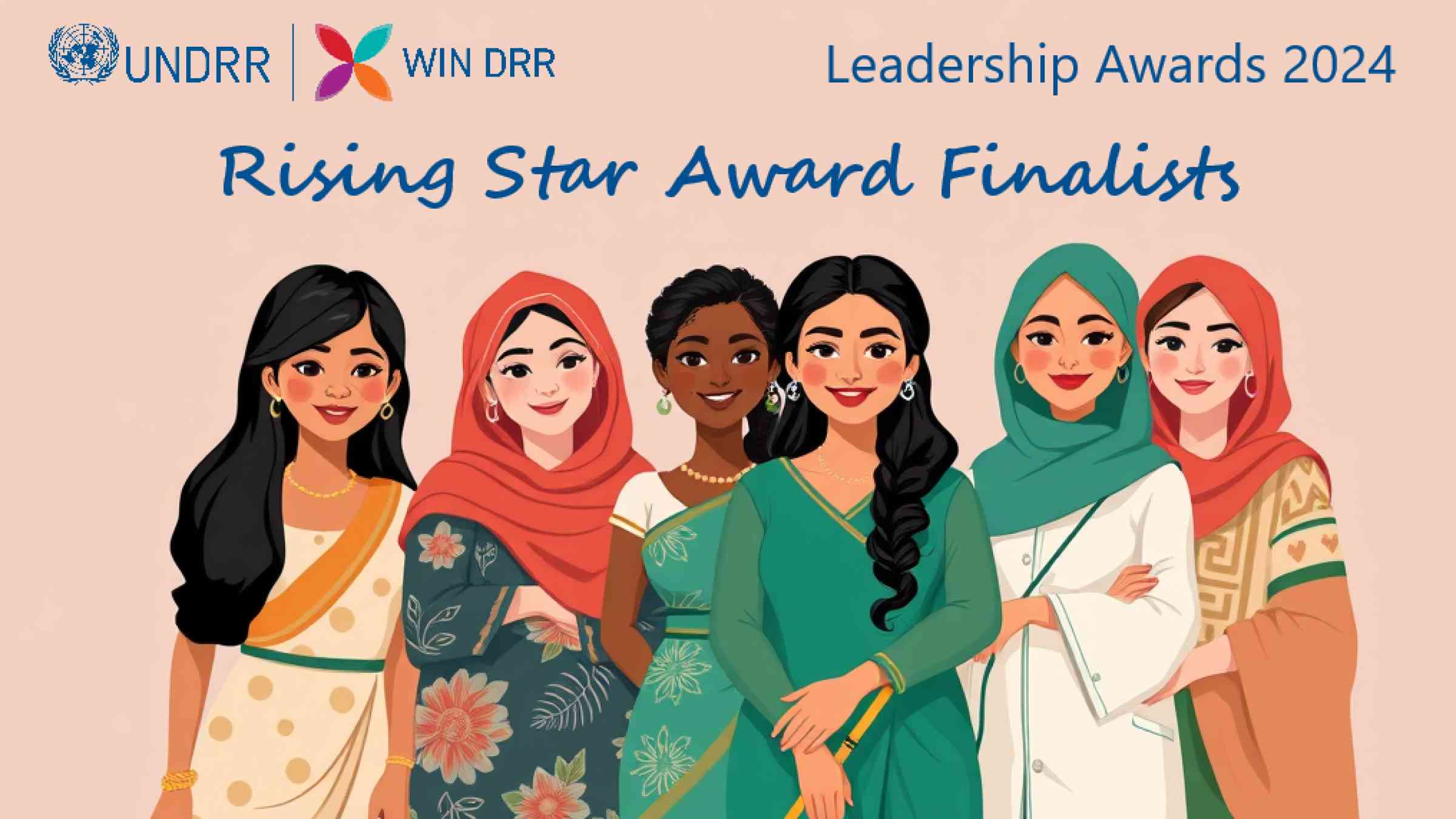
Women throughout Asia and the Pacific are playing a pivotal role in understanding, preventing, and reducing disaster risk in the world's most disaster-prone region. In 2024, six inspiring women have been chosen as finalists for the Women’s International Network for Disaster Risk Reduction (WIN DRR) Rising Star Award. Their diverse experiences highlight the wide range of solutions needed to address the growing challenges posed by increasingly severe and frequent disasters and the impacts of climate change.
Nayyab Ali – Pakistan
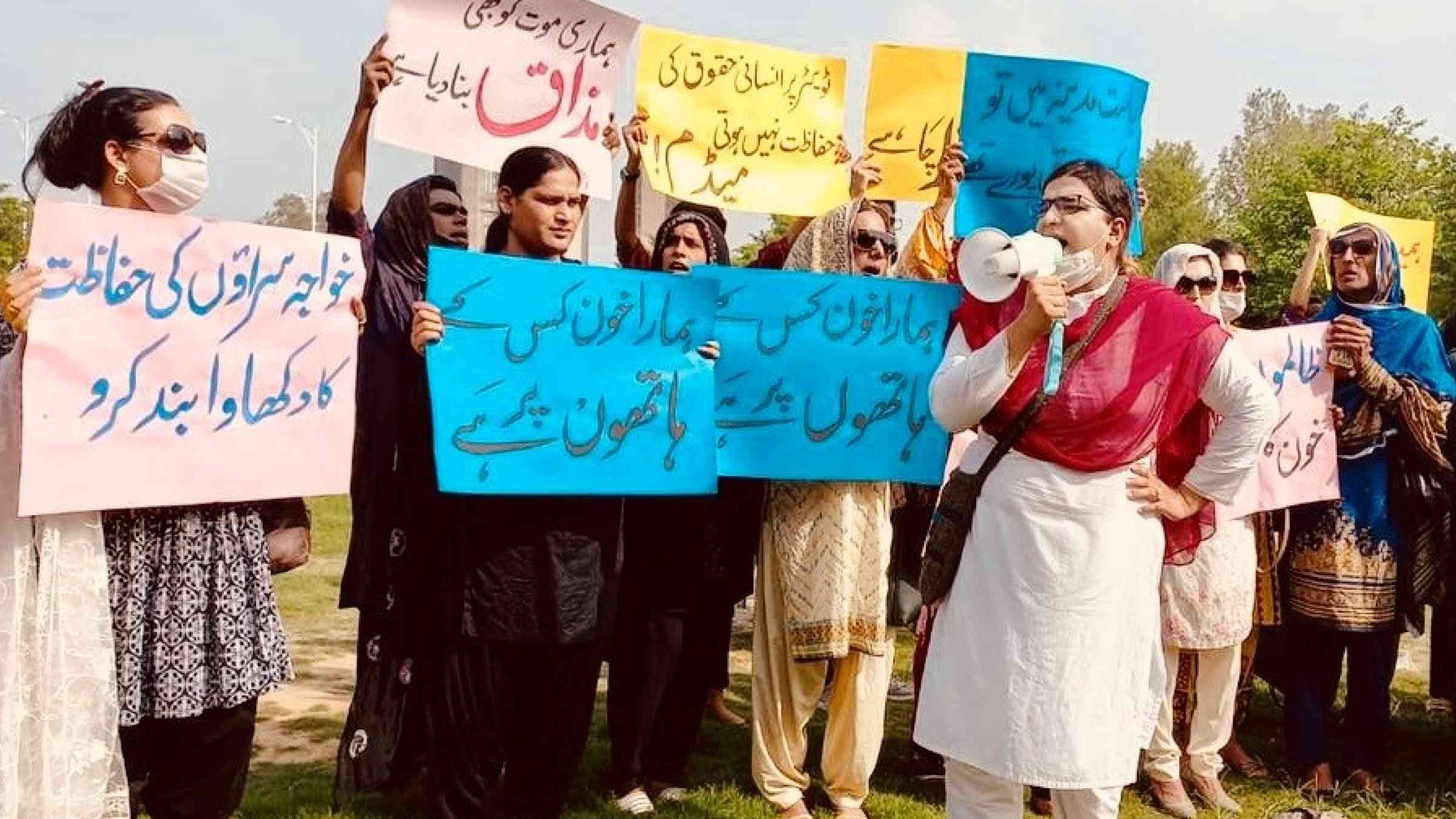
Nayyab Ali from Pakistan is at the forefront of advocating for the inclusion of marginalized communities in disaster risk reduction (DRR). As a National Technical Programme Specialist at the Peace & Justice Network Pakistan, her work focuses on the often-overlooked challenges faced by transgender individuals during disasters and seeks to ensure their protection and inclusion in disaster response frameworks.
Reflecting on her journey, she says:
"Everyone, regardless of their gender identity, deserves the right to safety and dignity during disasters. In times of crisis, we must ensure that no one is left behind, and that includes the most marginalized among us."
Nayyab’s advocacy focuses on raising awareness about the specific vulnerabilities of transgender individuals during crises. She engages with government agencies, humanitarian organizations, and disaster management authorities to push for transgender-inclusive DRR policies. Her efforts have led to significant shift in attitudes and perceptions on how transgender communities are considered in disaster planning and relief efforts, and the contribution they make to building resilience in their communities.
A key aspect of Nayyab’s work is capacity building. She conducts workshops and training sessions for government officials, humanitarian workers, and community members, educating them on the unique disaster risks faced by transgender individuals and promoting sensitivity and inclusivity in disaster response activities. By empowering other transgender individuals to take on leadership roles in disaster preparedness and response, Nayyab ensures their voices are heard and their needs are addressed.
Nayyab’s work has contributed to the development of transgender-inclusive policies at both national and provincial levels, resulting in tangible changes such as the inclusion of transgender individuals in disaster response standards and the establishment of task forces dedicated to their inclusion. These efforts have not only improved the safety and well-being of transgender individuals during disasters but have also fostered greater acceptance and recognition of their rights within society.
Nayyab’s leadership and advocacy have not only empowered transgender individuals in Pakistan but have also influenced broader DRR practices, making them more inclusive and just. Through her relentless efforts, she continues to break down barriers and create pathways for a safer, more equitable and resilient society.
Dr. Nairwita Bandyopadhyay - India
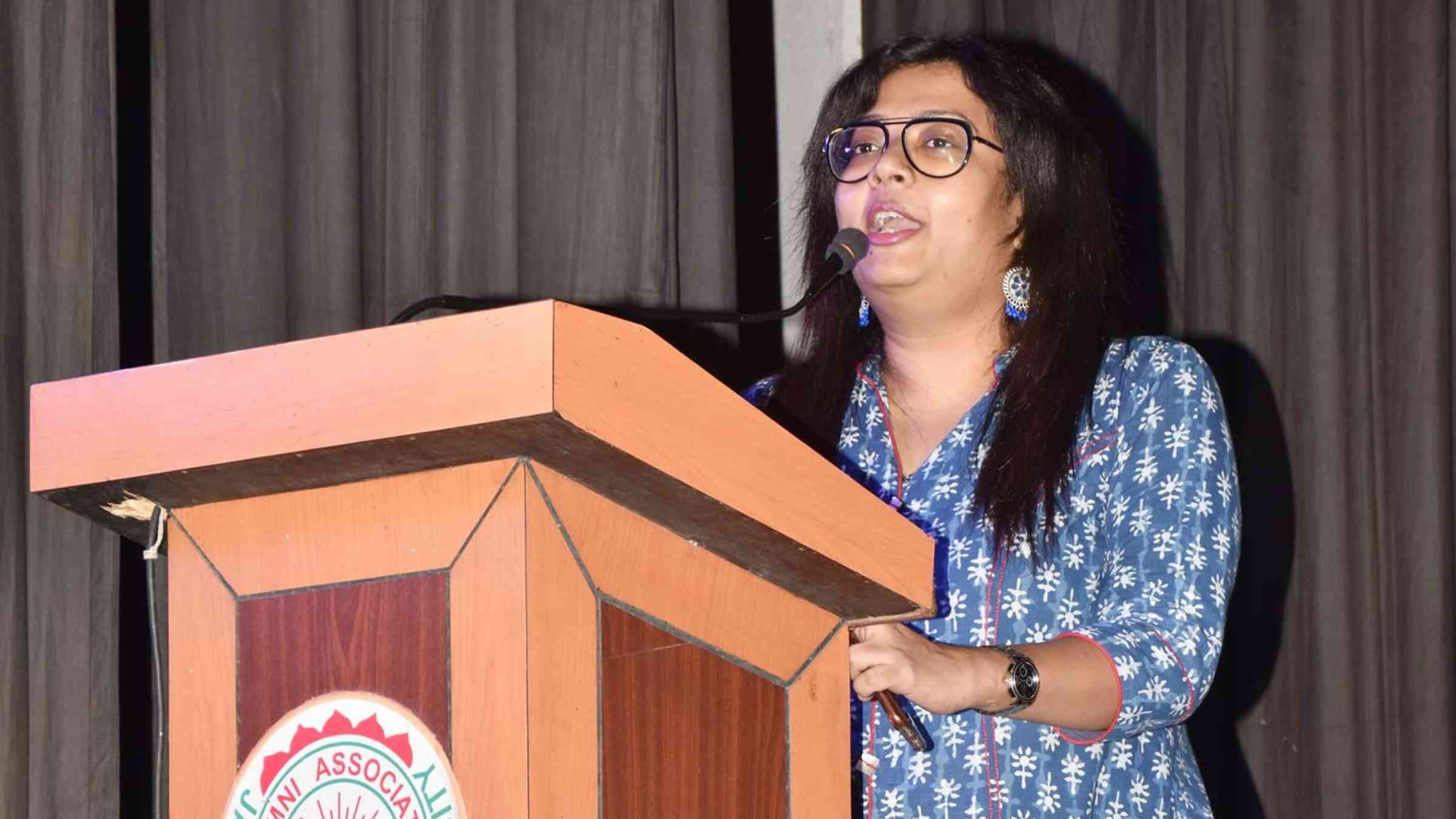
Dr. Nairwita Bandyopadhyay's work exemplifies a blend of practical solutions and scholarly insight, fostering greater resilience and preparedness within her community. Her contributions reflect a deep commitment to improving DRR practices and empowering those most affected by natural hazards.
Nairwita from Kolkata of West Bengal in India uses both her knowledge of geography and psychology in spreading awareness and creating innovative methods that help her community to understand disaster risk and take informed decisions before a disaster strikes.
She is an Assistant Professor of Geography at Haringhata Mahavidyalaya, affiliated with the University of Kalyani, and her work is centered on improving early warning systems and raising awareness about weather-related hazards, particularly in rural and marginal areas of West Bengal, India. Her commitment towards the social impact of disasters stems from her research and extensive field experience in disaster prone areas.
Nairwita has utilized social media as a powerful tool for disaster risk communication. She established the "Meghdoot" Facebook page, which has garnered over 1,000 subscribers. This platform serves as an important resource for disseminating real-time weather updates, including cyclones and lightning forecasts, and provides free training on interpreting satellite imagery. Through Meghdoot, she has empowered students and local residents with the knowledge to understand and respond to disaster risks, despite working with limited resources.
Nairwita's impact extends beyond digital platforms. She has innovated methods to make weather information more accessible and understandable. By using local television networks to provide timely and accurate information about weather events, she has helped mitigate the sensationalism often seen in media reporting. She has also developed a manual for journalists on disaster reporting in collaboration with the Press Club of Kolkata. This manual addresses the challenges of misinformation in disaster reporting, aiming to enhance the accuracy and reliability of media coverage. This approach has not only reduced public fear but also fostered better community preparedness and collaboration.
In addition to her practical contributions, Nairwita has made significant academic contributions to the field of DRR. She has co-edited two books on addressing risk, uncertainty, and maladaptation to climate change and on Indigenous knowledge and DRR. Her research, which has been widely cited in international journals, focuses on drought adaptation, Indigenous knowledge, and localized disaster policies. This academic work complements her practical efforts, providing a robust foundation for her advocacy and teaching.
"In the face of adversity, it's often women who rise to lead, innovate, and protect. Through knowledge and compassion, we have the power to transform communities, turning vulnerability into resilience," Nairwita says.
Mediatrich Triani – Indonesia
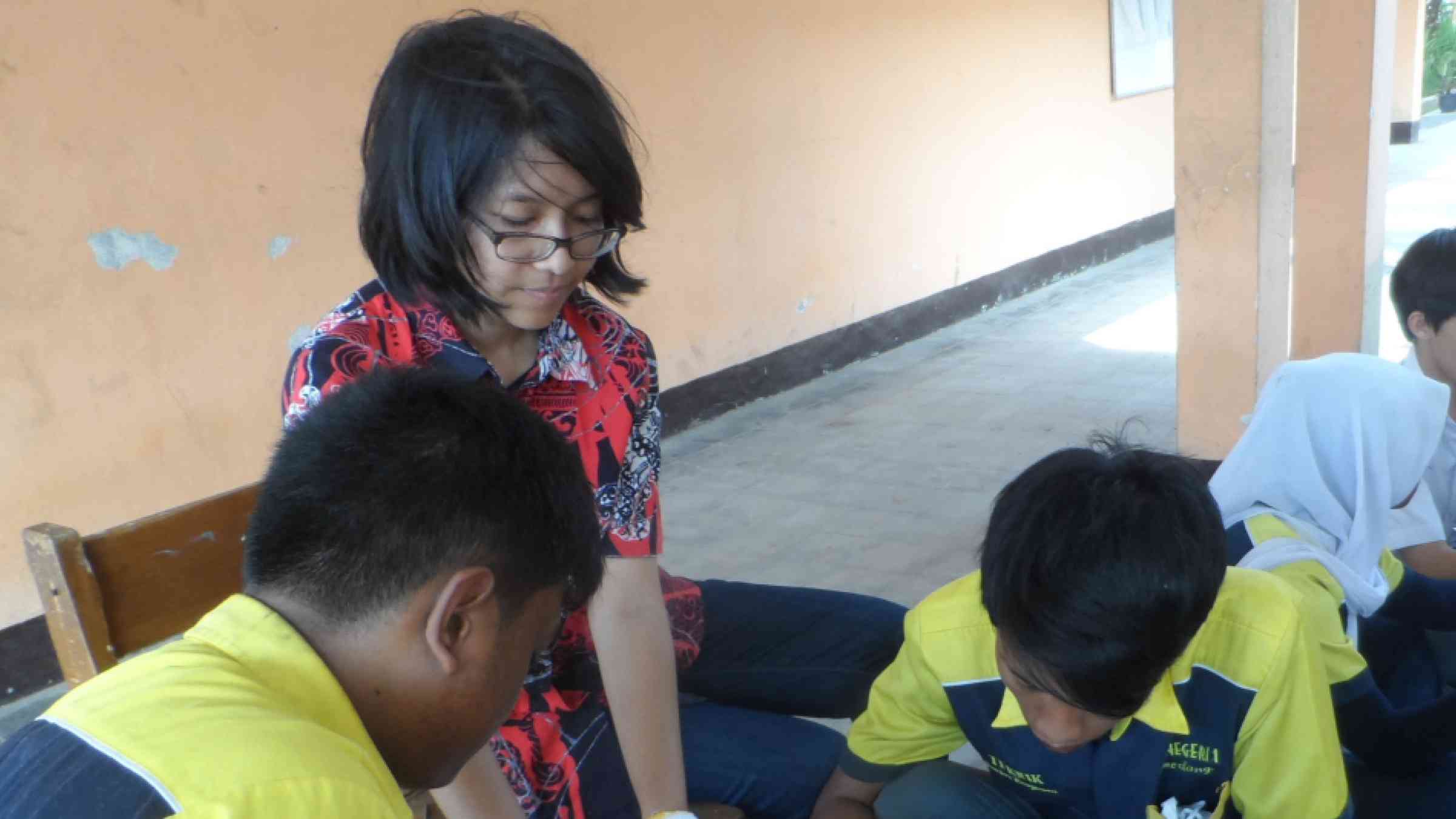
Mediatrich Triani N. (Novianingsih), known as Ani, from Surakarta, Indonesia is the Indonesia Country Programme Manager for Build Change, a women-led global social innovator with a vision to make every home disaster resilient. With over a decade of experience in DRR, Ani focuses on improving housing and infrastructure, addressing the urgent need for resilient structures in countries frequently hit by disasters, including when she was involved in reconstruction after the 2013 super typhoon Haiyan in the Philippines.
In 2017, Ani spearheaded the Safer Schools Programme which mapped existing school buildings deficiencies in Padang, Indonesia, and piloted a seismic retrofitting project. It trained builders and government officials and used local materials and techniques for simple, cost-effective solutions to improve resilience of masonry school buildings. In 2023, following the devastating Cianjur earthquake, her team retrofitted another school, enhancing safety for hundreds of students and educators.
As bricks are the most commonly used wall materials across Indonesia, Ani leads the Improving Brickmakers Capacity Programme, which enhances brick-making processes for small and medium enterprises (SME), the majority of which are women, producing over 22 million resilient bricks. This initiative boosts local SME capacities and has improved compliance with resilience standards for over 2,000 homes and buildings.
“As a trained architect, I always believed houses collapsed in earthquakes because people didn’t know how to build properly,” Ani says. “So I thought that making information accessible would solve the problem. I realize now that it’s not enough if we don’t simultaneously stimulate changes in other barriers: money and people or policy.”
Recognizing the challenges faced by low-income communities, Ani has developed and led programmes to overcome these barriers. Partnering with KOMIDA, an all-women-members microfinance institution, she and her team introduced a digital tool to help homeowners assess house vulnerabilities, understand climate and disaster risks, and secure financing for improvements. These efforts have led to the retrofit of homes and are set to scale up in 2024 and beyond.
Ani’s leadership combines technical expertise with strategic advocacy. She has played a pivotal role in evaluating and enhancing Indonesia’s national housing subsidy programme, resulting in a significant increase in structural compliance among participating homeowners. Her work with the World Bank and Indonesia’s Ministry of Housing has led to policy changes, including increased subsidies and improved quality monitoring. Ani and her team are now preparing technical guidelines for the Indonesia Green Affordable Housing Programme that will be launched by the government to advance the resilient housing access for all.
“When a house collapses, the sense of security of its occupants towards their home also collapses,” Ani says. “Ensuring homeowners’ involvement during reconstruction helps to rebuild not only the structures they live in but the feeling of home those buildings represent to them.”
Robyn Camille Mijares – Philippines

Robyn Mijares from the Philippines is the Founder and Executive Director of Youth Uprising Philippines, a non-profit organization which provides free accessible environmental and agricultural education to the marginalized Filipino youth of public schools across the country in both classrooms and farmlands.
Her work, driven by a deep commitment to addressing food insecurity exacerbated by the COVID-19 pandemic, has impacted over 98,000 public school students across Las Pinas City in Metro Manila. Robyn’s journey began as a classroom assignment as a 19-year-old but quickly evolved into a movement to combat hunger and empower youth through sustainable agriculture.Through her transformative efforts in addressing the dire risks of hunger in the Philippines, Robyn has highlighted the critical role of food security in building resilience against disasters.
Amid the COVID-19 pandemic’s devastating effects, including food insecurity and disrupted supply chains, Robyn recognized a critical need for local solutions. The “Oh My, GARDEN: Grow Your Own Food Contest” emerged from this recognition, distributing vegetable planting kits and workshops to public schools. This initiative enabled students to grow their own food, addressing both immediate hunger and long-term food security. Robyn’s innovative approach also addresses the aging population of Filipino farmers, ensuring that future generations are equipped with the skills needed for sustainable agriculture.
The establishment of Grow School Philippines marks another milestone in Robyn’s journey. This unique educational institution, built from sustainable bamboo and powered by renewable energy, serves as a beacon of eco-friendly agriculture. Here, urban and rural children alike are introduced to local farming practices and nature-based solutions, fostering a holistic understanding of agriculture that integrates population health, economic stability, and environmental sustainability. Robyn’s efforts have not only provided immediate relief but also laid the groundwork for long-term community resilience. Her work with Grow School and the “Oh My, GARDEN” project has empowered marginalized youth and their families to become self-sufficient food producers, significantly enhancing their resilience to future disasters. By instilling a sense of agency and responsibility in young people, she ensures that they become active contributors to their communities’ well-being.
Her leadership has garnered widespread recognition, from TEDx talks to international awards. Robyn’s achievements include being featured by VOGUE Philippines, recognized by the Department of Agriculture of the Philippines, and selected as a Fellow in the Youth Southeast Asian Leaders Initiative. Her influence extends beyond the Philippines, with projects expanding into Lao PDR, Thailand, and Indonesia.
“I want to advance innovative and sustainable farming for the Filipino youth to never be hungry, but always have the hunger for change. Changing agriculture in the Philippines one school at a time, one student at a time.”
Her quote stands for her dedication to nurturing both the land and its people. Advancing her work exemplifies how one individual’s vision and passion can inspire a movement, turning challenges into opportunities for growth and resilience.
Jewel Luti Leao Tuitama – New Zealand
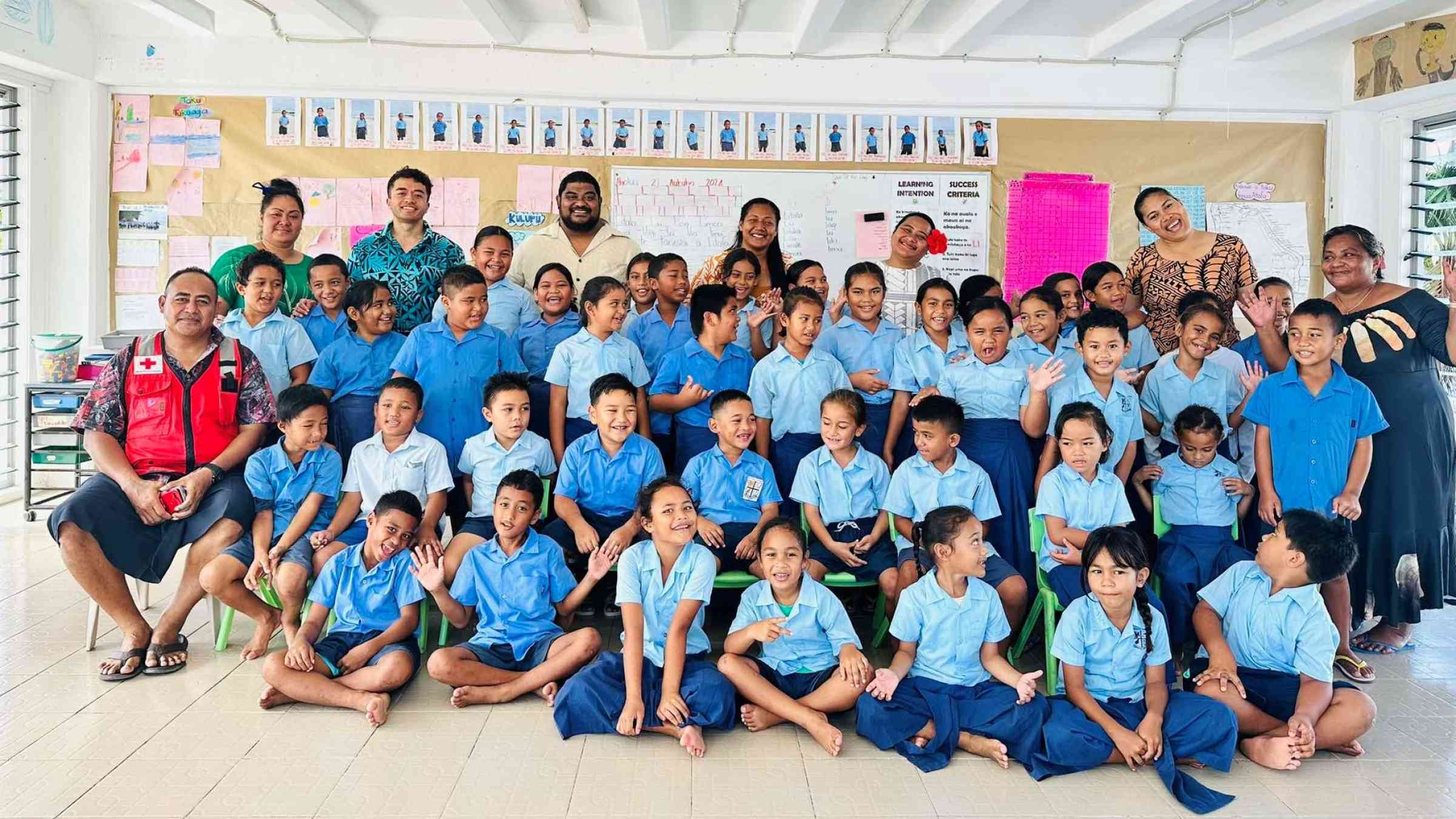
For nearly six years, Jewel Luti Leao Tuitama has been the key force driving DRR in Tokelau. Her journey has been one of resilience, determination, sacrifice and a deep commitment to protecting the communities from the many risks they face as small atoll nations in the Pacific.
Jewel from the villages of Faleasiu and Solosolo in Samoa and Fakaofo in Tokelau serves as the Manager of the National Disaster Programme in Tokelau, a remote group of atolls in the South Pacific Ocean. Her work encompasses a broad range of activities aimed at strengthening community resilience, from community capacity building to developing emergency management plans and procedures. Jewel's efforts are focused on identifying hazards and risks, assessing vulnerabilities, implementing mitigation measures, and supporting communities through preparedness, response and recovery phases.
Jewel has been the sole staff member of the Tokelau National Disaster Programme, also known as the Disaster Unit since 2018, continuing her work through to 2024 during the global COVID-19 pandemic, with the recent addition of a new disaster officer to her team. One of Jewel’s most notable contributions is her leadership in coordinating the Tokelau Disaster Risk Reduction Response and Resilience Plan (TDR4). This plan serves as a comprehensive guide for DRR and management at both the Tokelau-wide and village levels. Under her guidance, the Tokelau National Disaster Response Training Programme was launched in May 2024. This three-week programme, which also had an intensive physical training component, equipped Tokelauan community first responders with critical skills, including first aid, water sanitation and hygiene (WASH) management, shelter toolkit usage, psychological first aid, search and rescue, fire warden training, land-based oil spill incidents and advanced fire suppression. The training also featured a component designed to address the specific vulnerabilities of women in disasters and inspire a transformation towards inclusive resilience.
Jewel’s leadership is exemplified by her active involvement in every aspect of the training she organizes. Not only does she coordinate and host these events, but she also participates in them, enduring the same challenges as the trainees. Her hands-on approach ensures she remains aware of the struggles and needs of her team, thereby enhancing her ability to support them effectively.
“I strive to be present in every training, to journey through the same challenges as those I’m preparing, so I can better support and inspire them. Leadership means standing alongside your team and sharing their journey.”
Jewel’s commitment to disaster management and her leadership in developing and implementing comprehensive training programmes showcase her exceptional commitment in the field. Her work not only enhances Tokelau’s disaster preparedness but also sets a benchmark for community-focused DRR practices.
Liva Shrestha – Nepal

Liva Shrestha from Kathmandu in Nepal is an accomplished structural engineer leading the charge for resilient housing in Nepal and across the Asia-Pacific region. With over 18 years of experience, Liva has been instrumental in addressing the urgent need for safe, affordable housing in disaster-prone areas, particularly for low-income communities. As the Lead Structural Engineer for Build Change, Liva played a pivotal role in the recovery efforts following the 2015 Gorkha earthquake, helping to reconstruct and retrofit over 32,000 homes and training more than 4,000 engineers.
Liva’s leadership has driven significant advancements in resilient housing. Under her guidance, 34 technical support centers were established in earthquake-affected areas, providing more than 3,000 homeowners with resilient housing designs. She also championed the concept of retrofitting, a cost-effective method to strengthen existing homes, which has enabled over 300 homeowners to retrofit their houses. Liva’s work extends beyond Nepal, impacting communities in the Philippines and Indonesia through the development of technical tools and training programmes that have made thousands of homes safer.
Liva’s leadership is characterized by her technical oversight, innovative use of technology, and commitment to mentorship. She has led teams of up to 160 engineers, ensuring the highest standards in resilient housing projects. Additionally, her mentorship has empowered local engineers and construction workers, fostering a culture of continuous improvement and ensuring the sustainability of resilient housing practices.
A passionate advocate for accessible finance for housing resilience, Liva has collaborated with financial institutions and policymakers to prioritize funding for home strengthening. Her efforts have made it easier for homeowners to access the necessary funds to retrofit their homes, contributing to safer living conditions and overall community stability.
"Our work is about more than building houses; it’s about empowering communities to build a safer future. Every safe home we help create is a step towards breaking the cycle of vulnerability."
Background
The WIN DRR Leadership Awards recognize women's achievements in DRR across the Asia-Pacific region. The awards are part of UNDRR's flagship women's leadership initiative, the Women's International Network for Disaster Risk Reduction (WIN DRR), supported by the Government of Australia. There are two award categories, the Excellence Award, proudly sponsored by SM Prime, and the Rising Star Award. The Rising Star Award of US$7,500 will be granted to an individual woman who has demonstrated potential early in her career. The winners in both categories will be announced during the Asia-Pacific Ministerial Conference on Disaster Risk Reduction (APMCDRR) on 16 October 2024 in Manila, Philippines.
In addition to the WIN DRR Rising Star Award finalists presented above, also see the Excellence Award finalists 2024 in this blog.
WIN DRR is a professional network. It promotes and supports women's leadership in DRR across the Asia-Pacific region and aims to reduce the barriers faced by women and empower them to attain leadership and enhance their decision-making in DRR and resilience building. WIN DRR is supported by UNDRR and the Government of Australia.
Join the Women’s International Network for Disaster Risk Reduction (WIN DRR)